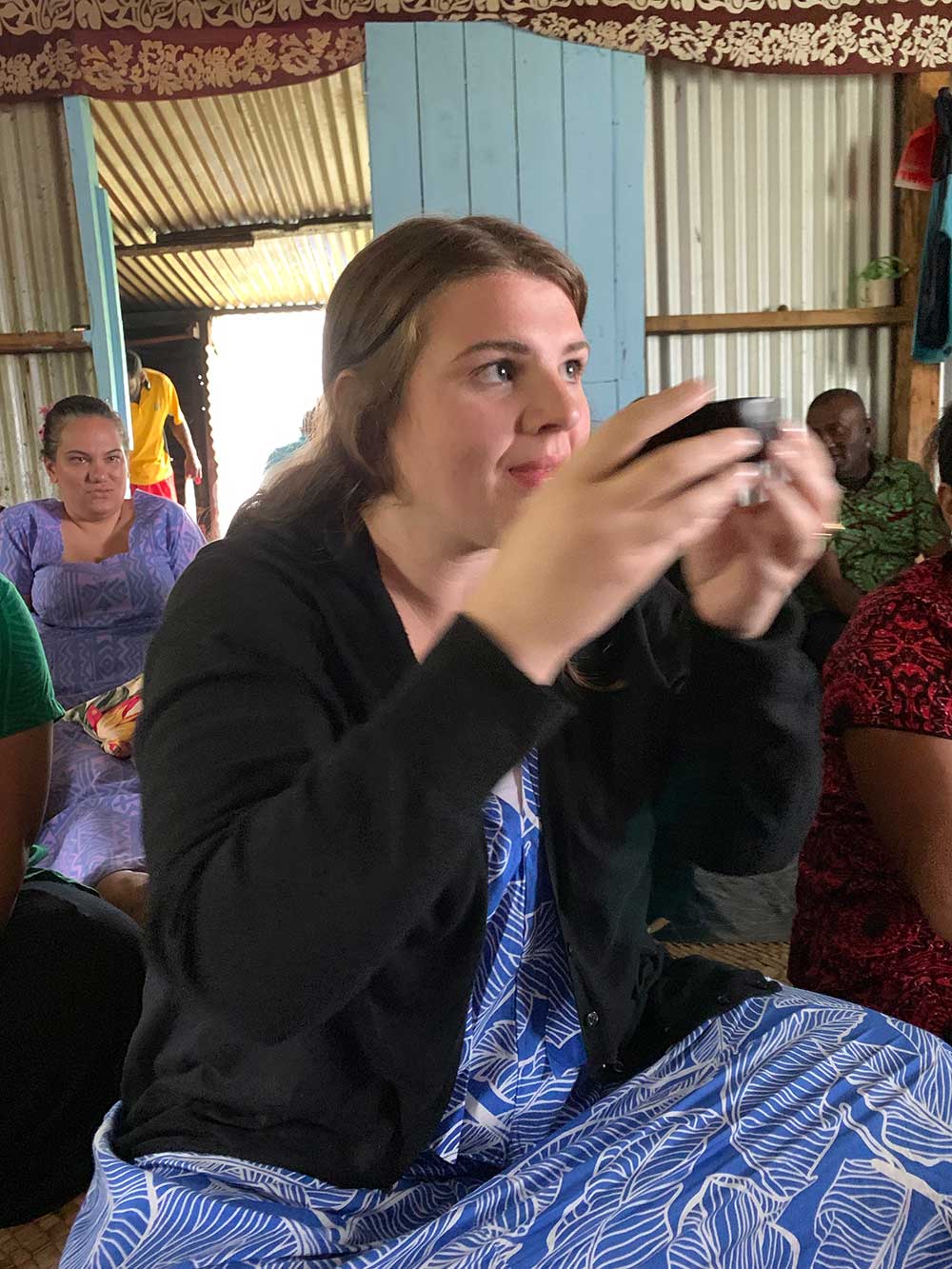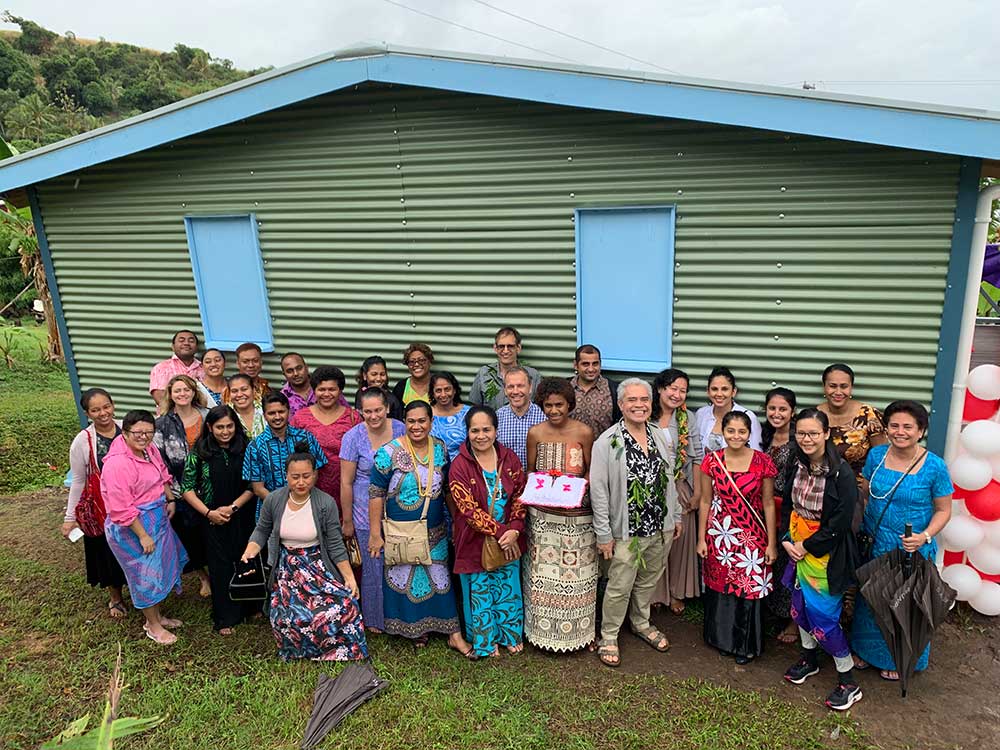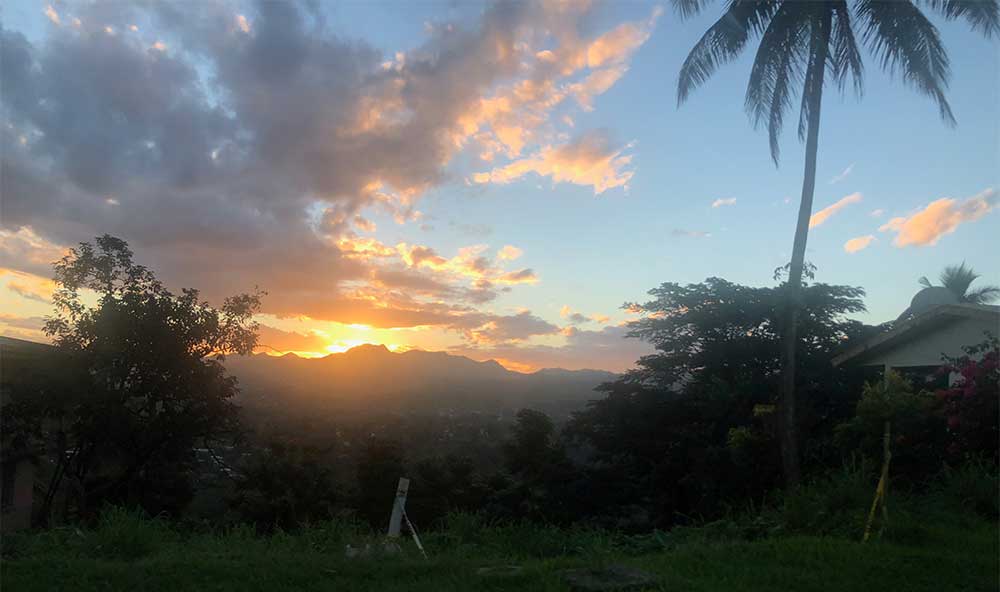Picking Fiji for my externship was one of the best decisions I have made. I learned so much and my legal skills significantly improved, but there are some things I wish I would have known before heading to Fiji that I think anyone doing this externship would benefit from knowing. The first thing I would have liked to have known before adventuring off to Fiji and working at Munro Leys is that although everyone talks in very hushed tones and the office is quiet, these are the nicest people you will probably ever meet. Not only in the office but also throughout the country. The culture is very welcoming, and they love to guide and explain things about it, so ask questions if you have them. The next thing is that the firm is pronounced Mun-row lees not Munro Lays, and that is probably one of the easier things to pronounce in Fiji.
When it comes to housing, I would recommend going through Airbnb. Some places are a little further out of downtown Suva, but they come with a little more safety. Our home was up in the Tamavua Village with Char Chow, and she is one of the best hosts. So, if you can, try to get her place, it’s a studio flat with a private entrance, kitchen, and bathroom. She also knows a lot of people at the firm because she and her husband own a business in the same building as the office and another down the street from the office. Because our place is further out we do pay for a taxi to and from work. We have arranged with a taxi driver to pick us up and drop us off every day and have negotiated to pay 9 FJ per way, which is about 4 USD. Other taxi ride prices were about the same with our most expensive being from The Suva airport into town at 25 FJ.
Other transportation tips would be to fly into Suva. There is a bus option from Nadi to Suva but its 4 hours on a very crowded bus, on a very curvy road. The bus cost about 15 FJ, but a lot of times you can find a plane ticket for 30-50FJ from Nadi to Suva and I personally think it’s worth it. If you are planning on going to the islands out west, by Nadi, where all the tourists go again, I would recommend flying. We made trips out to Nadi twice and on one trip took the bus and the other we flew. You can also fly to the other big island of Taveuni, but purchase those tickets ahead of time as they were a little more expensive and only fly on Fridays and Mondays. If you plan on going out to Taveuni, I would ask for a long weekend after you have made sure to get your hours in, and the firm is willing to work with you. Going to Nadi and those Islands is possible to do without taking time off of work.
The visa process is pretty simple here when you first fly in the border agent will ask why you are here and tell them you are coming to work for free as a student at the law firm, and they will give you a 14-day visa. Once you start work, Nina, the woman in charge of immigration matters will ask for your itinerary, passport, and 180FJ. She will then take care of the rest for you.
The work you will be doing will be split between the two or three departments in the firm. I started on the commercial team for three weeks, where I did a lot of work on submissions for a company going public, copyright work for a television show, and work with shareholder documents. Then my next three weeks were on the Litigation team where I did most legal research to help to solicitors with their cases. When doing research, especially for the litigation team, ask what is good law and what country to use to start your research. Typically, if there is Fijian law, they start there but if there isn’t they go to Australia and then sometimes even further. The court systems are also so divided, so often you will find cases that all say different things but are still good law, so you have to go back and see what they based their argument on and go from there. Do not worry too much, if you need clarification ask, but you get the hang of it pretty quickly. The firm does have a Trademarks team and if you want to work with them just let Susie and Tamara know, and they will get you on their side for a couple of weeks.
Here are some things I recommend doing while in Fiji. Seeing as much of Viti Levu as you can. There are beaches on the coral coast between Nadi and Suva, and the Beach house is a friendly little bungalow resort. I would recommend renting a car to drive yourself there. When out West by Nadi, go and see the small islands, this is where all the resorts are. If you email or call the resort and ask for a discount they are generally willing to work with you, we did a weekend at Serenity Island and another at Beachcombers after a day of sailing to other islands (including the one where Castaway was filmed). Another recommendation I would give is to try and get out to Taveuni and dive the rainbow reef if you have the chance. If you want to see any of the interior of Viti Levu make friends with the locals and they are more than likely willing to take you. Also, my last travel tip would be to visit a village and join them in a grog drinking ceremony. Immerse yourself in the culture of Fiji. I got to experience this when the Munro Leys took us to a Village, and it was by far one of my favorite parts.
I love the beaches, but being able to be a part of a village that doesn’t get a lot of tourist visits was an incredible experience. We started the day by heading towards the north side of Viti Levu, and then after two hours spent another hour on a gravel road full of potholes. As we approached the village you could see the destruction of Cyclone Winston, even three years later. Many of the palm trees just looked like giant sticks in the mud. Winston also destroyed 44 of 54 homes in the village and took two lives. This was one of the reasons the firm’s partners choose this village to build an evacuation center. The center will be able to shelter the village from a category four cyclone in the future.
Once we arrived at the village, we were greeted by the Chief, even in the pouring rain. He greeted us with a Bula and shook every single person’s hand. Next, we waited in a community house, until the Chief and other older members of the village were ready. Next, we moved to another house, and we went through a ceremony with prayer, and welcoming us to the village, and the partners (through an interpreter) apologized for the group for any mistakes we might make while in their village. At the end of this speech, we were now a part of the village, more as a family than visitors and were treated as such. The ceremony continued with a ceremonial Kava drinking, which is known as grog once the Kava is mixed with water. The grog tasted just like what it is, ground uproot and water, but it did leave a numbing feeling on my tongue and lips. Then the partners and Habitat for Humanity presented the community with the evacuation center, and the grog drinking continued. Once the center was presented, the village continued to serve grog and then provided us with an abundant assortment of cakes and other treats. It was fascinating how much and the variety, that the woman were able to make for us without an oven. As we ate, music was played and people danced. I got to see another Fijian tradition. The men all sat on one side of the room and women on the other, which I had not noticed until then. The women of the firm and village started to unroll yards and yards of material and then proceed to circle around the men. This created a pseudo barrier around them. Once this was done, the woman then took baby powder and rubbed it all over the men’s faces. I am not sure what this tradition was for or what it meant, as I forgot to ask, but it was fascinating to be able to experience it. After that, we continued to drink grog, eat, and dance to music. Soon later we left the village and headed to VoliVoli, the most northern point of the island. At VoliVoli we had a delightful dinner, and there was lots of dancing.
Doing an Externship in Fiji is one of the greatest opportunities a law student can have. Being able to immerse yourself in the culture, the traditions, and most especially the law is a once in a lifetime experience.


